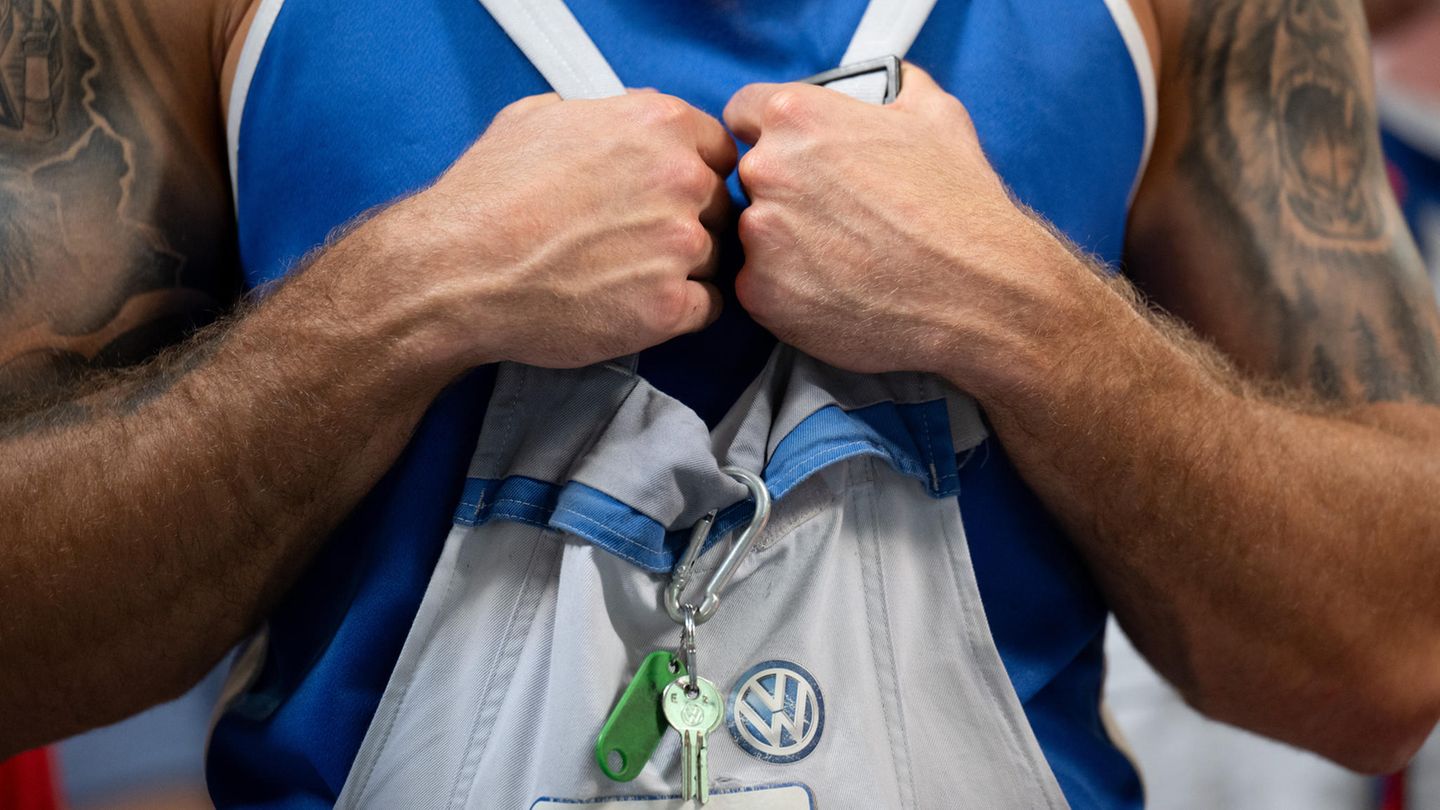The VW crisis seems to symbolize the country’s crisis. But for the SPD it is also an opportunity. Will cheap industrial electricity prices come now?
Daniela Cavallo is a welcome guest in the SPD these days. On Monday morning she was connected to the meeting of the SPD executive committee, and in the evening Cavallo is also scheduled to attend the meeting of the Bundestag parliamentary group.
The head of the Volkswagen works council is fighting against the German carmaker’s cutback plans, which could lead to layoffs and factory closures. And the Social Democrats? They obviously want to leave no doubt about what they think of the plans – and whose side they are primarily on.
“The SPD stands by the side of industrial workers,” says Sebastian Roloff, member of the SPD party executive, and tells the star: “So we must do everything we can to preserve their well-paid, collectively agreed jobs in the country – and to secure them for the future.” Roloff also sees the federal government as having a duty in this regard.
The crisis at VW, but also the impending insolvency of the Meyer shipyard and the loss-making steel division of Thyssenkrupp could offer the Social Democrats an opportunity to stand up for employees and to preserve jobs – and thus to highlight their profile as a workers’ party. It is unclear whether this will succeed. The VW crisis has long been seen as a symbol of the country’s crisis, for which the SPD is held jointly liable. The recent European and state elections have shown that the Social Democrats clearly need to raise their profile: many workers have migrated to the extremes and populists of the AfD and BSW. The SPD as the political home of the workers? That was once, it seems.
SPD politician Roloff for industrial electricity price and purchase premium
The fact that the SPD wants to take up the fight for them is not only shown by its demonstrative solidarity with VW works council leader Cavallo. Top comrades such as party leader Lars Klingbeil make it clear that the “victims of the crisis” should not be the employees at VW. Klingbeil spoke out against layoffs in the “Süddeutsche Zeitung” and now called for “swift” consultations between the federal government and industry. He still considers an industrial electricity price to be a “good option,” said the SPD leader, and he could also imagine further funding for incentives to buy electric cars.
Sebastian Roloff, a member of the Bundestag’s Economic Committee, is also calling for financial backing from the state. “Just as I expect Volkswagen, as a responsible company, to adhere to the site security, I expect the federal government to do everything it can to ensure that Volkswagen can also secure this.” This can be achieved through “secure electricity prices, i.e. an industrial electricity price” for production and by promoting sales in the electric sector. “A purchase premium and improved tax depreciation options would make sense here,” says economic politician Roloff.
State subsidies are not without controversy. The SPD has long been advocating for an industrial electricity price, but its demand has so far failed due to the reservations of Chancellor Olaf Scholz and the coalition partner FDP.
The Social Democrats do not seem to be coordinating everything with each other in other respects either. SPD co-leader Saskia Esken recently expressed her scepticism about state financial aid to stabilize the VW Group. “State bonuses for electric cars are a useful instrument,” she told the “Handelsblatt,” “but there is no money for that given the current budget situation.” In addition, political measures cannot solve the fact that VW management “did not take electromobility seriously for many years.” Esken suggested, for example, the short-time work model to address the “acute problems” at VW. “The four-day week that has already been used in the past is also a model.”
The SPD is not only concerned with its profile as a party that has employees and companies in mind, especially the working middle class, but also with its standing in Lower Saxony, the SPD’s heartland and the location of Volkswagen’s headquarters. The state association includes top comrades such as party leader Klingbeil, Labor Minister Hubertus Heil and Lower Saxony’s Prime Minister Stephan Weil. All three want to prevent factory closures.
Prime Minister Weil is calling for the e-car purchase premium to be reinstated – the subsidy of up to 4,500 euros for new cars was abolished at the end of last year. According to Labor Minister Heil, it is the company’s turn first, as there are business problems to be solved. “But this is a strong company. We will support it politically,” said the Lower Saxon.
VW works council chairwoman Cavallo would probably be happy to hear that.
Source: Stern
I have been working in the news industry for over 6 years, first as a reporter and now as an editor. I have covered politics extensively, and my work has appeared in major newspapers and online news outlets around the world. In addition to my writing, I also contribute regularly to 24 Hours World.




